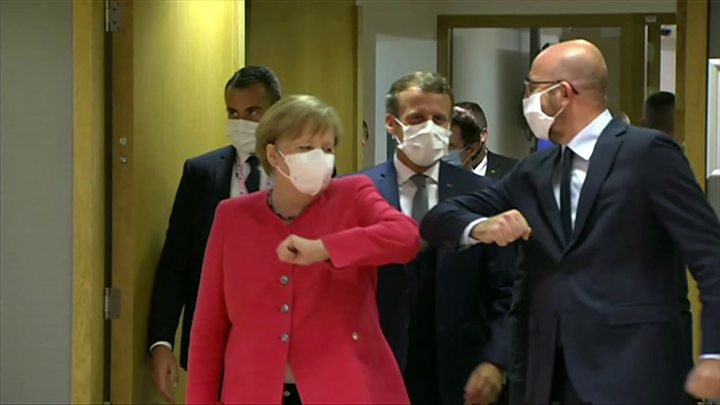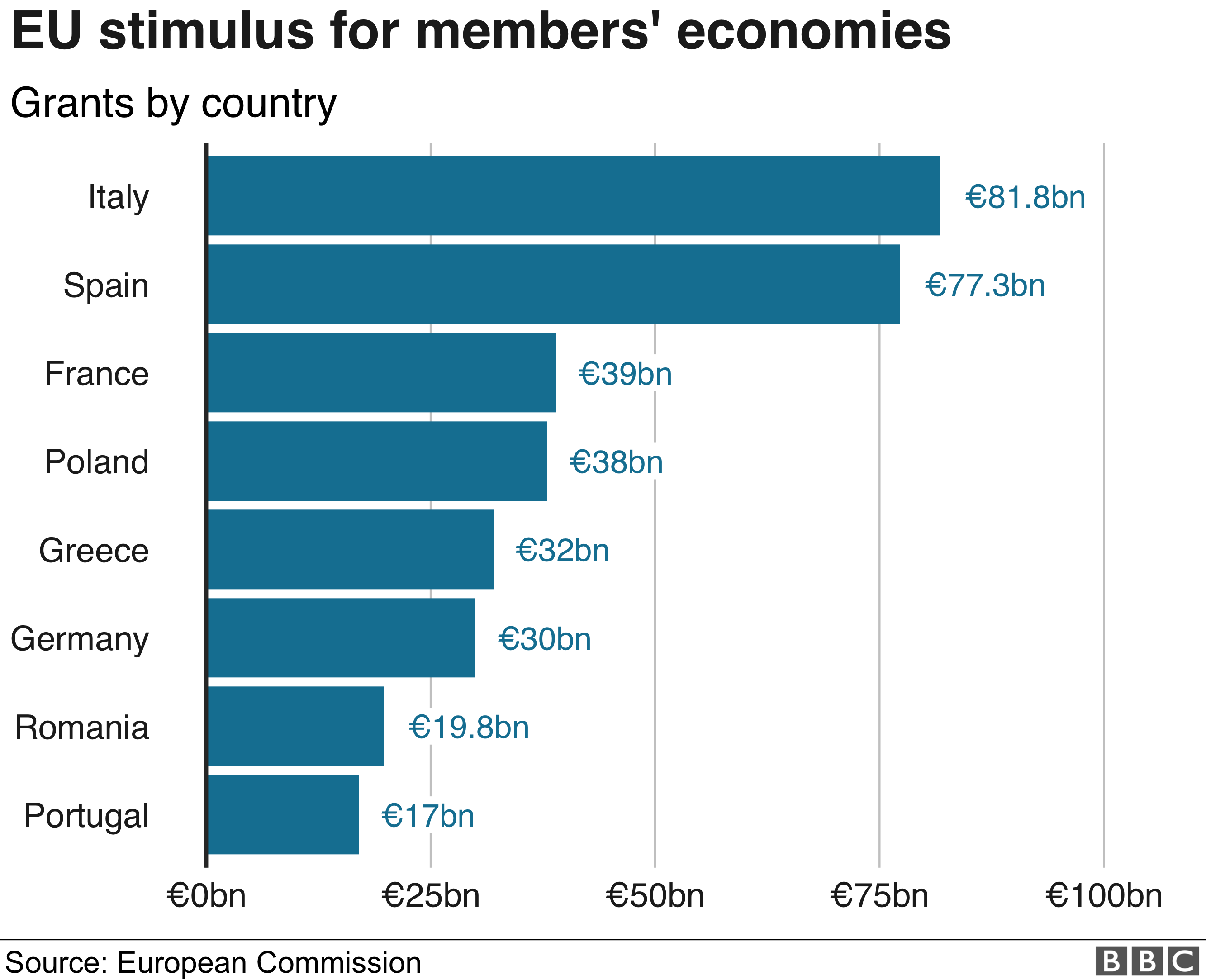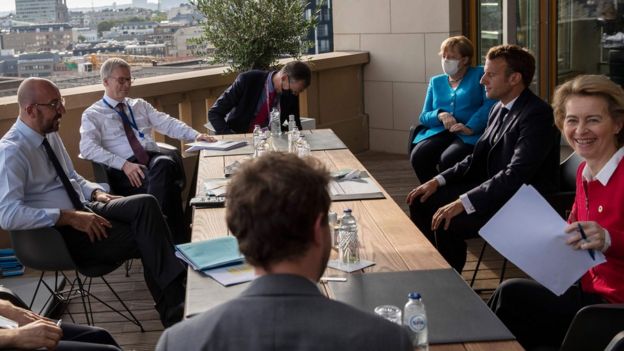EU talks aimed at reaching an agreement on a huge post-coronavirus recovery fund have stretched into a fourth day.
The main division is between countries hit hardest by the virus – such as Italy and Spain – and some EU members seeking to limit the size of the fund and stricter controls on its use.
They argue the proposed €750bn (£680bn; $857bn) package is too large and should be repayable loans, rather than grants.
The talks are reported to have been testy, with tempers flaring at times.
In the early hours of Monday, French President Emmanuel Macron reportedly banged his hand on the table and threatened to walk out of the discussions. However, as he arrived for the afternoon session, he said he was starting “with a lot of determination to make progress”.
Dutch Prime Minister Mark Rutte admitted leaders were “close to failure” and talks could still “fall apart”.
Discussions – which were originally scheduled to end on Saturday – are due to resume at 14:00 GMT (13:00 BST) for what is now the longest EU summit since Nice 2000, when talks lasted five days.
European Council President Charles Michel reminded the leaders that more than 600,000 people had died of the virus worldwide, and he hoped that the “headline tomorrow is that the EU has accomplished mission impossible”.
On Monday morning, the total number of confirmed cases of coronavirus was almost 14.5 million globally.
What’s hampering compromise?
EU leaders are trying to negotiate the stimulus package to help countries recover the pandemic at the same time as the bloc’s €1tn seven-year budget.
It was the first face-to-face meeting between leaders since governments began imposing lockdowns in a bid to stop the spread of the virus in March.

Member states are largely split between those hit hardest by the outbreak – and keen to revive their economies – and those more concerned about the costs of the recovery plan.
The self-proclaimed frugal four – Sweden, Denmark, Austria and the Netherlands – along with Finland, have been unwavering in their refusal to allow €500bn to be offered in the forms of grants to countries hardest-hit by the effects of Covid-19.
Led by Mr Rutte, they now say that €375bn is as far as they will go, plus conditions including the right to block requests. The others, including Spain and Italy, are refusing to go below €400bn.


Italy in particular was one of the earliest European countries to suffer an outbreak and has recorded 35,000 deaths – one of the highest tolls in the world. Italian PM Giuseppe Conte said Europe was “under the blackmail of the ‘frugals'” and described negotiations as “heated”.
The new proposal being put on the table is €390bn. A tweet by Austrian Chancellor Sebastian Kurz suggested there were signs of progress.
On Sunday, Hungarian PM Viktor Orban accused Mr Rutte of a personal vendetta and of trying to link financial help to political issues. Mr Orban, and his ally Poland, have threatened to veto the package if it adopts a policy of withholding funds from nations who do not meet certain democratic principles.
 Image copyrightGETTY IMAGES
Image copyrightGETTY IMAGESTempers flare

This is now the longest European summit since Nice 20 years ago, which went into day five when leaders agreed to expand the membership. This time around, money is at the heart of the negotiations and the issue of trust is the cause of the quarrelling.
Tempers have flared, and there has been some name calling, too. Mostly at the Dutch leader, Mark Rutte. Bulgaria’s leader Boyko Borissov accused Mr Rutte of “acting like the policeman of Europe”. Hungary’s Viktor Orban said, “It’s Dutch guy who’s to blame… I don’t know why he dislikes us.”
French officials tell me President Macron “banged his fists” on the table , as he told the “frugal four” that he thought they were putting the European project in danger. An Italian diplomat said Prime Minister Conte told Mr Rutte: “You might be a hero in your home country for a few days. But after a few weeks you will be held responsible for blocking an effective European response to Covid-19.”
These negotiations may become known unofficially as the “stiff-leg summit” – a term being used by the Dutch here meaning that Mr Rutte has been sticking to his guns.
There was a notable show of social-distancing etiquette when the leaders first arrived, faces covered by masks. But photos from Sunday evening show that the masks have slipped, along, it seems, with their approach to diplomacy.
